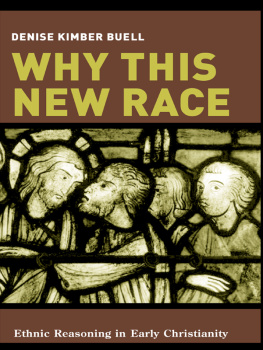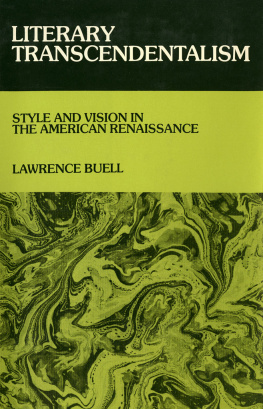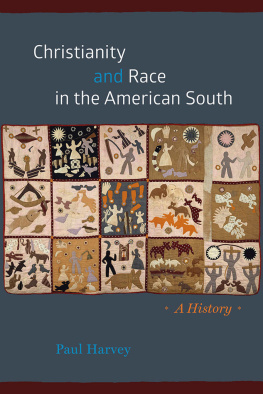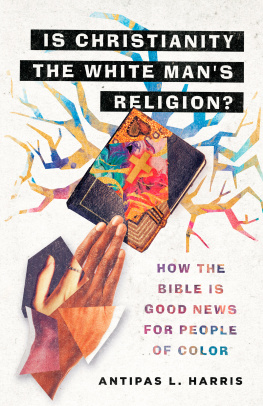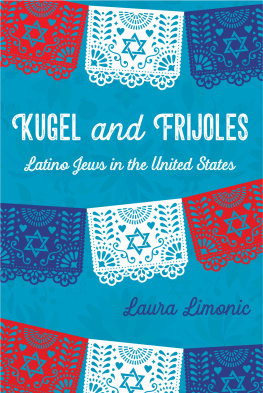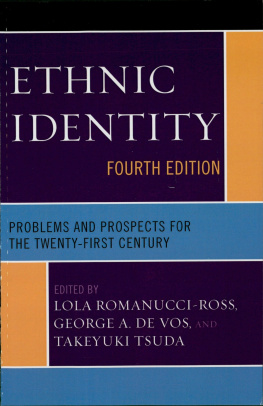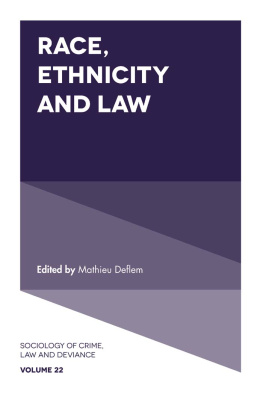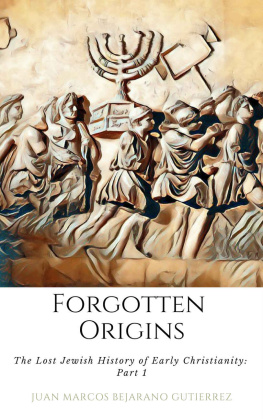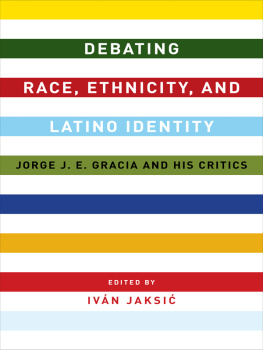WHY
THIS
NEW
RACE
Denise Kimber Buell
WHY
THIS
NEW
RACE
Ethnic Reasoning in Early Christianity
Columbia University Press
New York
Columbia University Press
Publishers Since 1893
New York Chichester, West Sussex
cup.columbia.edu
Copyright 2005 Columbia University Press
All rights reserved
E-ISBN 978-0-231-50820-9
Library of Congress Cataloging-in-Publication Data
Buell, Denise Kimber, 1965
Why this new race : ethnic reasoning in early Christianity / Denise K. Buell.
p. cm.
Includes bibliographical references and indexes.
ISBN 0231133340 (cloth : alk. paper)
1. RaceReligious aspectsChristianityHistory of doctrinesEarly church, ca. 30600. 2. EthnicityReligious aspectsChristianityHistory of doctrinesEarly church, ca. 30600. 3. Identification (Religion)History of doctrinesEarly church, ca. 30600. I. Title. II. Series.
BR195.R37B84 2005
270.1'089dc22
2005041278
A Columbia University Press E-book.
CUP would be pleased to hear about your reading experience with this e-book at .
Designed by Lisa Hamm
Contents
Ancient Literary Works
| AA | Acts of Andrew |
| Adv. Haer. | (Irenaeus) Against All Heresies |
| 1 Apol. | (Justin Martyr) First Apology |
| 2 Apol. | (Justin Martyr) Second Apology |
| Apol. | (Aristides, Tertullian) Apology |
| Dial. | (Justin Martyr) Dialogue with Trypho the Jew |
| Eccl. Hist. | (Eusebius) Ecclesiastical History |
| Embassy | (Athenagoras) Embassy on Behalf of the Christians |
| Ep. Diog. | Epistle to Diognetus |
| Exc. Theod. | (Clement of Alexandria) Excerpts of Theodotos |
| First Princ. | (Origen) On First Principles |
| GosPhil | The Gospel of Philip |
| Herm. Sim. | Shepherd of Hermas, Similitudes |
| Herm. Vis. | Shepherd of Hermas, Visions |
| M. Just. | Martyrdom of Saints Justin, Chariton, Charito, Evelpistus, Hierax, Paeon, Liberian, and their Community |
| M. Lyon and Vienne | Acts of the Martyrs of Lyon and Vienne |
| M. Perp. and Fel. | Martyrdom of Perpetua and Felicitas |
| M. Poly. | Martyrdom of Polycarp |
| Nat. D. | (Cicero) On the Nature of the Gods |
| Or. | (Aelius Aristides) Orations |
| P. Giss. | Papyrus Gissen |
| Prot. | (Clement of Alexandria) Protreptikos |
| Rec. | (Pseudo-Clement) Recognitions |
| Rom. Ant. | (Dionysios of Halicarnassus) Roman Antiquities |
| Scill. Mart. | Acts of the Scillitan Martyrs |
| SophJesChr | Sophia of Jesus Christ |
| Strom. | (Clement of Alexandria) Strmateis |
| Tetr. | (Ptolemy of Alexandria) Tetrabiblos |
| TriTrac | The Tripartite Tractate |
Modern References
| ANRW | Aufsteig und Neidergang der rmischen Welt |
| BG | Codex Papyrus Berolinensis |
| HTR | Harvard Theological Review |
| JBL | Journal of Biblical Literature |
| JECS | Journal of Early Christian Studies |
| JTS | Journal of Theological Studies |
| NHC | Nag Hammadi Codex |
| n.s. | new series |
| SC | Sources chrtiennes |
W hy do we need another book on early Christian self-definition? Many excellent studies already argue that early Christians defined themselves using a range of categories and strategies, comparing themselves with philosophical schools, households, other Jews, and modes of government. These studies all insist on interpreting early articulations of who and what Christians are in their specific historical, cultural, and political settings.
In part, this book is a variation on such studies. Scant attention has been paid to the ways that Christians defined themselves in terms of larger corporate collectives, which have been variously called ethnic groups, races, or nations (barbarian, gentile, as well as Greek, Roman, Jew, Egyptian, etc.). I call this mode of self-definition ethnic reasoning. Early Christians developed ethnic self-comparisons in relation to other kinds of self-comparisons, including familial and civic ones. Ethnic reasoning helps us to explain early Christian self-definition in ways that contribute to current scholarly attempts to rethink both how we understand the relationship between Christians and Jews in Roman antiquity and how we understand early Christian participation in ancient ways of thinking about identity and difference.
But I do not merely seek to situate early Christians more fully in their ancient context. By itself, this goal is problematic because it does not ask how the interpreter knows when (or that) she understands the ancient context and how she makes sense of materials from a different time and place. To address this concern, I also turn the spotlight on the interpretive framework. In my view, contemporary methodological as well as sociopolitical circumstances help to explain the reasons why most historians steer clear of speaking about ethnicity with respect to early Christians and strongly resist the applicability of race for antiquity overall. The presuppositions and frameworks that continue to dominate mainstream reconstructions of Christian origins have both racist and anti-Jewish consequenceseven when interpreters explicitly seek to avoid these consequences. We need to change our ways of thinking about early Christian history, which means also changing our ways of thinking about what race, ethnicity, and religion are.
At the same time, my methodological and sociopolitical commitments also condition the possibilities for and importance of interpreting some forms of early Christian imagination and practice as ethnic reasoning. I argue that by strategically using the modern categories of race and ethnicity to speak about early Christian self-definition, we will be better able to resolve a problematic paradox in the way these concepts have informed historical reconstructions of early Christians. Specifically, I challenge the view that ethnicity and race were irrelevant to early Christiansan argument that has been used to accomplish important modern antiracist work yet relies on and perpetuates anti-Judaism in the process. To support an interpretation of Christianity that can help end both racism and anti-Judaism, I revisit scholarship and early Christian texts that destabilize the prevailing view that Christian universalism can be understood as mutually exclusive with particularitya split that is often correlated with the nonethnic/ ethnic binary.

